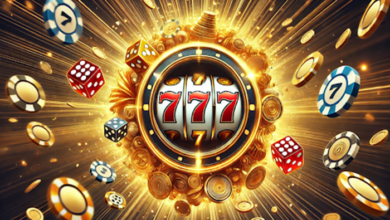Decentralized Casinos and Smart Contracts: The Prospects for Open Gambling

Fairness, transparency, and trust problems are common in the traditional gambling sector. Players must trust casino operators to manage bets on 22BET fro example, and ensure fairness. They are the middlemen, so they must also distribute profits. However, a new era of decentralized, trustless gambling is starting. It is due to smart contracts and blockchain technology. By removing third-party middlemen, these technologies will revolutionize the casino industry. They will create a fair, open, and safe environment for players.
Smart Contracts’ Function in Decentralized Casinos
The agreement’s terms are in the code of smart contracts. They are self-executing agreements. They use blockchain platforms. When specific criteria are met, transactions are done automatically. Casinos use smart contracts to automate tasks, like payouts and bets. They also verify results. These contracts are transparent and immutable once deployed. This means all actions are recorded on the blockchain and cannot be changed.
A decentralized gaming environment is made possible by smart contracts, which eliminate middlemen. Instead of relying on a central operator to handle their money or outcomes, players engage directly with the system. This gives players a clear, safe, and effective way to bet, check results, and get paid. It radically changes the gaming ecology.
Increasing Openness and Confidence
A key benefit of smart contracts is their transparency. This is vital in decentralized casinos. Players in casinos often doubt the games’ fairness. They worry about rigged results. Users no longer trust centralized platforms. They can change odds, manipulate results, or delay rewards.
Smart contracts, on the other hand, produce an unchangeable record of each transaction. Every wager and game result is on the blockchain. So, they are accessible to anyone with network access. Players can confirm the fairness of games by checking the smart contract. They must ensure the outcomes come from a trusted source. It must be like an oracle that feeds the contract real-time game data.
Also, there is no human involvement in the automated contracts. They execute the wagers and rewards. All players are treated equally and fairly. The contract’s terms are set and cannot be changed. Players know they are in a fair, transparent, and controlled setting. This, free from rigging or hidden costs, promotes trust.
Removing the Requirement for Middlemen
To simplify transactions, validate results, and ensure fairness, traditional casinos sometimes use middlemen. These include banks, payment processors, and third-party regulators. These middlemen bring delays, extra expenses, and the possibility of mistakes or manipulation.
Because smart contracts automate the entire process, they do away with the need for these middlemen. A smart contract-based, decentralized casino takes bets on the blockchain. It sends money immediately when the wager’s terms are met. The streamlined process lowers fees, speeds payouts, and improves players’ experience.
Additionally, gamers can use cryptocurrencies in decentralized casinos, which makes transactions much easier. Cryptocurrencies can replace traditional banking. They often have high fees and delays. Use crypto for deposits, bets, and withdrawals. At decentralized casinos, players can bet, receive rewards, and deposit money into their digital wallets. All of this happens almost instantly. A centralized gambling system can’t achieve this efficiency and autonomy.
Protecting the Experience of Gambling
Online gaming sites’ security is a persistent worry. Both online and offline casinos are prone to fraud, cyberattacks, and data breaches. Hackers like centralized systems. They hold sensitive player data, including financial and personal info.
Smart contracts and blockchain tech improve security. They store data in a decentralized, party-less ledger. The blockchain provides an unchangeable record of all wagers and outcomes. It prevents the removal or change of transactions once posted. Because of this, it is practically impossible for bad actors to change game results or manipulate the system. Players control their money, kept in decentralized wallets. This lowers fraud and theft risks.
Also, players can verify the casino’s activities. Smart contracts are publicly verifiable. They can check the contract parameters. This ensures the house edge is within limits and the payout is fair. Players are given a degree of confidence by this transparency that is hard to come by in conventional gambling settings.
Cutting Down on Match-Fixing and Fraud
In the gambling sector, fraud and match-fixing are recurring issues. Some centralized casino operators have manipulated games to benefit the house. They made players think they were winning. Another major problem in sports bets is match-fixing, which is the manipulation of an event’s result for financial gain.





